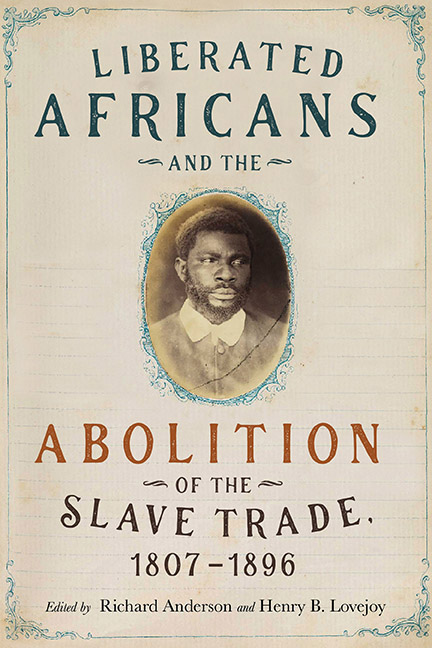Book contents
- Frontmatter
- Dedication
- Contents
- List of Illustrations
- Acknowledgments
- Introduction: “Liberated Africans” and Early International Courts of Humanitarian Effort
- Part One Origins of Liberated Africans
- Part Two Sierra Leone
- Part Three Caribbean
- Part Four Lusophone Atlantic
- Part Five Liberated Africans in Global Perspective
- Part Six Resettlements
- Bibliography
- Notes on Contributors
- Index
10 - British Antislavery Diplomacy and Liberated African Rights as an International Issue
Published online by Cambridge University Press: 21 March 2020
- Frontmatter
- Dedication
- Contents
- List of Illustrations
- Acknowledgments
- Introduction: “Liberated Africans” and Early International Courts of Humanitarian Effort
- Part One Origins of Liberated Africans
- Part Two Sierra Leone
- Part Three Caribbean
- Part Four Lusophone Atlantic
- Part Five Liberated Africans in Global Perspective
- Part Six Resettlements
- Bibliography
- Notes on Contributors
- Index
Summary
The effective end of the Atlantic slave trade in 1867 marked the culmination of a sixty-year international suppression campaign, coordinated and driven to a significant extent by British political, diplomatic, economic, and naval pressure; by the threat and use of violence explicitly framed in terms of morality, “right thinking,” and the “redemption” of humanity. Defending the at times extralegal tactics used to achieve the ultimate objective, Prime Minister Viscount Palmerston told the House of Commons in July 1864 that the Brazilian component of the slave trade “has ceased.” Since he had ordered gunboats into Brazilian territorial waters in 1849, the Brazilian government had finally “been compelled by force to do what the [1826] treaty bound them to do… . I take great credit to myself for having been instrumental in bringing about that result.” Palmerston's satisfaction reflected the mood of elation, self-congratulation, and imperial pride with which British abolitionists and the general public greeted the extinction of the Atlantic trade and set the tone for the first wave of histories that would be written on the subject. In many ways, the ultimate success of the British intervention, and the narratives of providential victory that accompanied it, obscured much of the process detail that had so concerned many contemporaries along the way. Not least, it distracted from the significant human cost of the trade as it continued, even flourished, from 1807 to 1867 and the many ways in which the liberated African “disposal” system not only failed on its own terms but created conditions often far worse than slavery. In this chapter I explore the evolution of liberated African rights as a foreign-policy interest of Great Britain and consider the ways in which the “antislavery world system” was deployed in pursuit of those rights for Africans liberated in Brazil and Cuba.
The high-profile examples of Richard Robert Madden and David Turnbull—two committed abolitionists controversially sent to Cuba as superintendents of liberated Africans in the 1830s and 1840s—along with the diplomatic crisis of the “Christie Affair” in Brazil in the early 1860s— ought not to give the misleading impression that group- and individual-level liberated African rights were a significant priority of mid-nineteenth-century British foreign policy, even at the expense of good relations with rival colonial powers and trading partners, such as Spain and Brazil.
- Type
- Chapter
- Information
- Publisher: Boydell & BrewerPrint publication year: 2020



